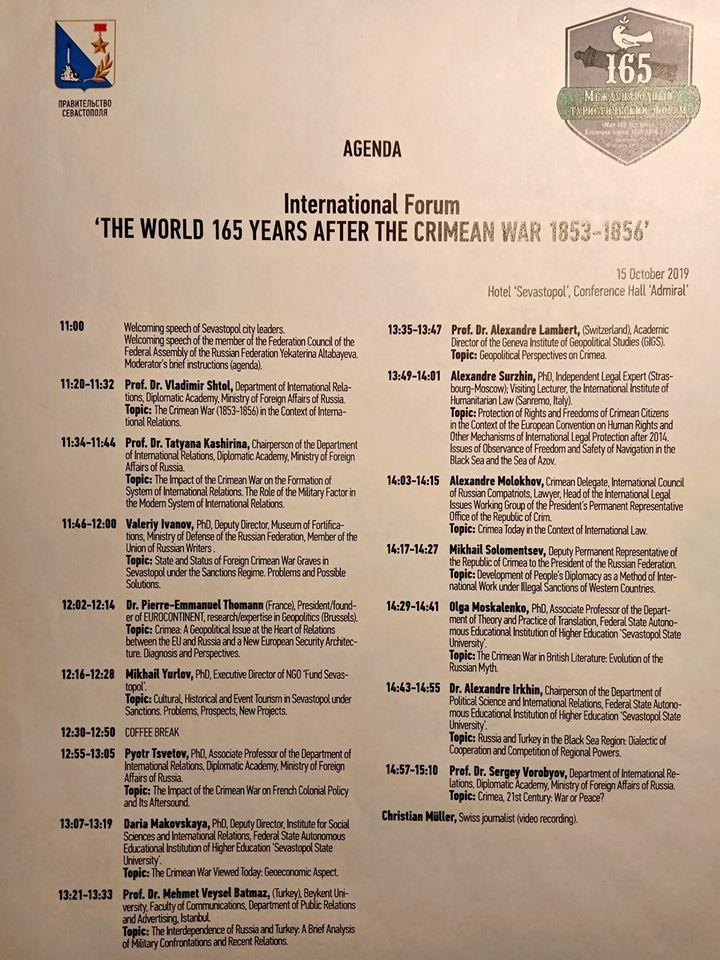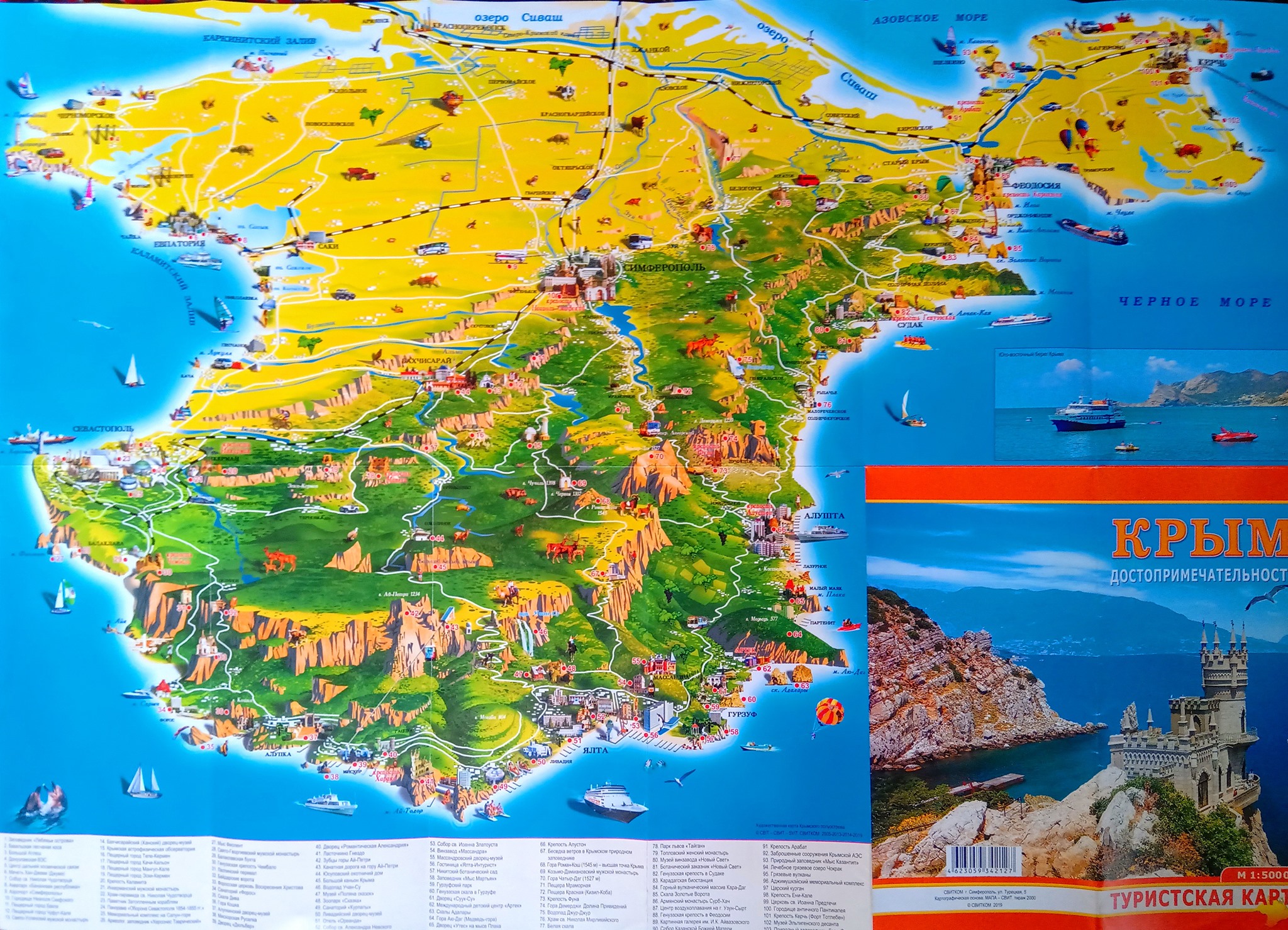
The world 165 years after the Crimean War 1853-1856 -International Forum – Sevastopol – October 15, 2019
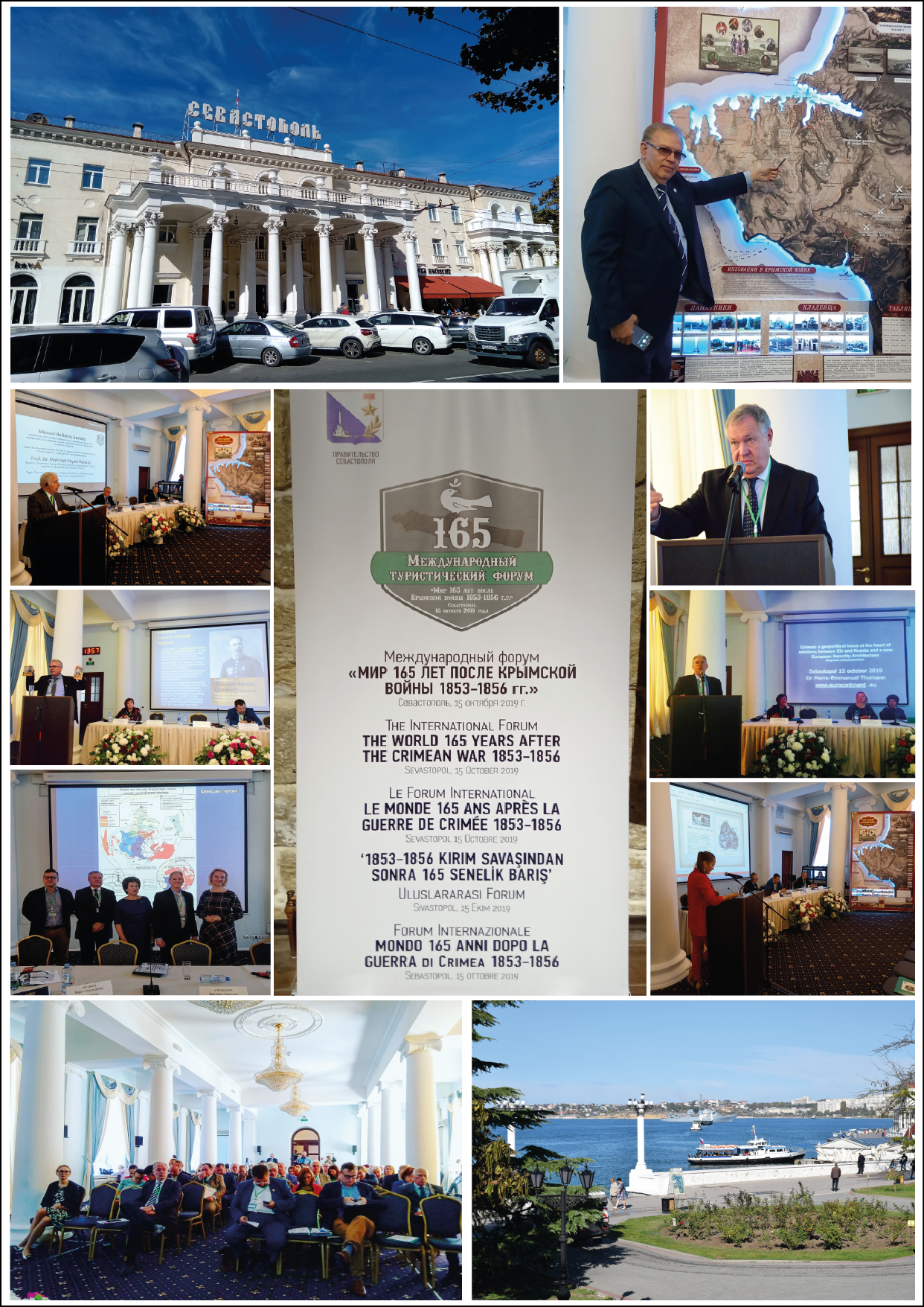
Pictures of the conference in Sevastopol
On 15 October 2019, an international forum on the consequences of the Crimean War in 1853-1856 was organized in Sevastopol. This is the first event of this kind since Crimea was reunified with Russia in 2014. The participants, historians, geopoliticians and experts in international relations from Russia but 2019o from France, Turkey and Switzerland focused on the legacy left by the Crimean War in the 19th century and the lessons that can be learned today in the context of the crisis between the European Union (EU) and Russia. Indeed, Crimea is once again at the centre of a geopolitical controversy. A sanction regime has been applied since 2014 by the European Union against Russia and Crimea in particular, and constitutes an obstacle for a fruitful cooperation between Russia and the EU member states.
However, it is necessary to overcome this dispute to avoid a deterioration of security in Europe, and finally identify common interests between Russia and other European nations from EU.
A resolution was adopted by the participants and stresses that “A significant increase of the NATO and its satellites presence near the Crimea, opened saber rattling after 2014, reaching provocations at sea, sabotage to cut off the water and power supply of the peninsula, anti-Russian propaganda in the Western countries media that went beyond any limits, are subjects to public condemnation and the implementation of vigorous counter-action, both humanitarian and international, of a forensic and legal nature. »
The Forum participants put forward a number of initiatives, which, first of all, relate to attracting the attention of the world community to the real situation in the territory of Crimea. To this end, “it is advisable to continue the practice of holding international scientific and practical conferences in Crimea, to carry out actions in support of peace, including through cultural, scientific and students exchanges, holding joint exhibitions, music and other festivals, sports competitions with the participation of famous Russian and foreign scientists, figures of culture and art, sports”, the resolution says.
A ceremony at the monument dedicated to the Russian and French soldiers who fell at the battle of Malakoff also took place in the presence of Russian youth from Sevastopol, who will build a stable continental Europe tomorrow, thanks to the preservation of historical memory.
The issue of Crimea highlighted by the forum is to be related to the evolution of the political situation in Europe and the recent inflections of foreign policy, particularly in France. French President Emmanuel Macron also recently highlighted the problematic issue of NATO’s purpose, and his intervention reinforces the relevance of the issues raised at this forum in Sevastopol. During an interview with The Economist magazine, The French president stressed that « NATO was thought to have an enemy: the Warsaw Pact, and in 1990 we did not re-evaluate this geopolitical project in the light of the disappearance of the original enemy. the enemy is still Russia, and it is also true that when we intervene in Syria against terrorism, it is not NATO that intervenes, we use the NATO interoperability mechanisms but is an ad hoc coalition, so the question of the current purpose of NATO is a real question to ask. » . He also added that we need to « reopen a strategic dialogue, without any naivety and that will take time, with Russia. Because it shows that you have to re-internalize your neighbourhood policy, you can not let it run by third parties who do not have the same interests as you. So for me it’s an important point, it’s a priority subject, geopolitical and military. »
https://www.economist.com/europe/2019/11/07/emmanuel-macron-in-his-own -words-french
It is to be hoped that the debate initiated by these declarations will not be limited to a communication policy, and will eventually lead to concrete decisions, in particular the lifting of sanctions and a substantial reset of the relations between France and Russia but also between the EU and Russia.
The current situation is damaging for everyone. The refusal of the European Union to grant visas to citizens living in Crimea who possess a Russian passport issued after 2014 constitutes a discrimination between citizens living in Crimea and other inhabitants of Russia. Crimean citizens are obliged to apply for a Ukrainian passport and apply for a visa in Ukraine. Many citizens still have Ukrainian passports, but not everyone. What are the consequences ? Exchanges between students and professors between Universities and higher education establishments in Crimea and EU, but also school study trips and business trips in the Schengen area and in countries that apply EU sanctions are very difficult to organize.
Sanctions are also preventing EU entrepreneurs from investing in Crimea or citizens from Crimea to do business with the EU and export their products. Cruise ships cannot dock in Crimea ports either, and travel agents from EU member states cannot operate in Crimea, drastically lowering the number of visitors. The inhabitants of Crimea are not responsible for the international geopolitical situation, and these sanctions constitute a discrimination against them.
The Russian state, however, invests heavily in Crimea and in Sevastopol characterized by a good degree of economic growth. Investments in infrastructure, in particular transport are important (a new airport was built in Simferopol, the new Crimea bridge that crosses the Kerch peninsula, the longest of Europe and Russia (18 km) was inaugurated in 2018 and it will be crossed by the railroad end 2019, a network of motorways is under construction).
The need for a new European security architecture was also highlighted during the conference, as a necessary framework for resolving geopolitical disputes between the EU and Russia, including the Crimea issue, which is the subject of specific sanctions. Meanwhile, according to the most likely scenario of evolution of the crisis, since the lifting of the sanctions is very uncertain in the near future, it is the creativity and the circumvention of the sanctions to make them more and more useless which would be the most accessible way. When governments realize that these sanctions are not only politically useless but less and less applicable on the ground or counter-productive, the lifting of sanctions may be considered.
The question of recognition of Crimea as an integral part of Russia is an even more difficult issue, but it will depend on the political will not to make it an obstacle to cooperation. The case of Turkey and the non-recognition by the EU of the Turkish Republic of Northern Cyprus, which is de facto under Turkish military control, demonstrates that this does not constitute an obstacle, nor for a customs union between the EU and Turkey, neither for financial support for Turkey (migration crisis and pre-accession funds), nor to continue EU accession negotiations.
However, it must be emphasized that this rapprochement can only be achieved on a principle of equality and a geopolitical balance between Russia and Western Europeans states, and not on the principle of an extension of the normative doctrine of the EU. The EU, whose normative and ideological principles are not anymore adapted to the new global and European geopolitical configuration should also be subject to a fundamental reform process. If this proves impossible, bilateral relations with Russia should be the driving force behind a new settlement. The doctrine of multilateralism put forward by the EU can not be developed without a prior and accepted multipolarity.
The sanctions against Russia and Crimea in particular are a failure because the situation has not changed. The EU and Russia are in a situation of deadlock to the detriment of everyone.
Crimea was in the past and will in the future part of Russian. This is the intractable reality not only from the historical point of view but also from geopolitical realism. This is an unavoidable reality.
From the historical point of view, Crimea is linked to the Russian world since the Middle Ages. Vladimir The Great (of Kiev Russia) converted to Orthodoxy in Chersonese (today in Greater Sevastopol) before bringing Christianity to the early Slav state of Rus, seen as the precursor to modern Russia. After the historical interlude of the Tatar invasion, the Crimea was integrated into the Russian empire by Catherine II in 1783 and the port of Sevastopol was founded the same year.
From a geopolitical point of view, Crimea is a highly strategic territory in the Black Sea, which is a hub between Russia, Ukraine, the Balkans, the Caucasus, Turkey and the Middle East. The port of Sevastopol gives Russia an opening to the Mediterranean and the Atlantic and Indian Oceans (via the Suez Canal).
Crimea in the 19th century was already at the heart of the rival ambitions of the Russian, Ottoman, French and British empires. The coup d’état of Louis Napoleon Bonaparte, (Napoleon III), December 2, 1851, and the reestablishment of the French empire again aroused the fears of Russian Tsar Nicholas I. Russia considered herself as the guarantor of the European order since the constitution of the Holy Alliance against Napoleon and the French Empire. It also tried to stem the ideas of the French Revolution that might contaminate the Russian, Austrian and Prussian monarchies. From the point of view of France and England, it was the expansionist aims of Russia towards the Turkish straits (The Dardanelles and the Bosphorus) and Constantinople but also in the Balkans, which threatened to destroy the European balance of power. France and England suspected Russia of implicitly pursuing « the Greek project » (or Byzantine) of Catherine II. This geopolitical project was to restore a sort of new Byzantine Empire with Constantinople as its capital but under Russian influence.
During the Crimean War of 1853-56, France and England sought to reduce Russian influence in the Black Sea and the Mediterranean and supported the Ottoman Empire in rivalry against Russia. Napoleon III had already begun colonization in Algeria since 1830, and sought to regain for France a central position in Europe that it lost after the fall of Napoleon I. England wanted to secure the road to India.
The Treaty of Paris in 1856 ended the Crimean War. The Treaty proclaimed the integrity of the Ottoman Empire, declared the neutrality of the Black Sea, forbade Russia navigation to warships and the construction of fortifications. It marked a halt to Russian expansion in the region. The geopolitical consequences of this war would upset much later the European balance of power. The long term geopolitical consequences were unexpectedly damaging for France in particular, with the evolution of the international system based on the principle of nationalities promoted by Napoleon III, with the Italian and German unification. These evolution led to the Franco-Prussian war in which France found itself isolated, after a temporary power gain. In 1871, Russia took advantage of the French defeat during the Franco-Prussian War of 1870 to revise the clauses on the demilitarization of the Black Sea.
Faced with the growing German preponderance in Europe, France sought to form a Franco-Russian alliance, on the eve of the First World War.
The main lesson of history that emerged from this international forum, is that the European purposes are not conceivable without Russia, neither in the past nor in the future.
Today the will of some NATO countries to weaken Russia is damaging to the security of Europe and has many parallels with the situation in the nineteenth century. Many geopolitical interests are today identical between Russia and the member countries of the European Union. These include the stabilization of the arc of crisis in southern Eurasia that goes from North Africa, including Sahel to Afghanistan, which threatens all Eurasia, Russia and European countries of the West included, with failed states and the Islamist terrorist threat.
From a legal point of view, in reality, the reunification of Crimea with Russia is a matter of the right of peoples to self-determination, a principle that has not been respected by states that do not recognize referendums and membership from Crimea to Russia according to Professor Alfred Zayas. (https://dezayasalfred.wordpress.com/2018/02/27/presentation-to-the-brussels-conference-on-self-determination-at-the-center-for-european-and-policy-studies-and-intervention-in-the-european-parliament-26-27-february-2018 /). The legal dispute derives from a unilateral interpretation of international law by NATO and EU member states.
Crimea (26,945 km²) is a territory that is about three times Corsica (8722 km²), with more than 2 million 300 000 inhabitants. The coast in Crimea is about 2500 km (compared to France, 2435 km in the Mediterranean, with 1385 km between Spain and Italy and 1050 km in Corsica).
Because of its size and its geographical position, Crimea is a territory with a huge potential thanks to its strategic position but also its historical, cultural, natural and culinary heritage (including products from fishing and vineyards). Crimea is an important place of interest for the European civilization with Russia as its eastern pillar. Archaeological sites (Scythian, ancient Greek Chersonese, Roman, Byzantine, Genoese, Armenians, Tatar, Turkish), but also architecture, landscaped parks, natural heritage, gastronomy, wine culture, attest widely.
A resumption of European investment in Crimea but also tourist flows would not only represent commercial opportunities for both Crimean citizens and investors from EU countries. Exchanges between universities, research institutes, schools would also be very beneficial for younger generations and scientists.
The potential areas of cooperation are very wide. We can mention the analysis and research in geopolitics and international relations in the Black Sea area (interface – Russia-Crimea, Balkans, Turkey, Caucasus, Middle East ..) but also in marine sciences, the environment, the artificial intelligence, archaeology, agronomy, wine industry, fishing …
Another issue is the fate of the graves and monuments dedicated to the soldiers (French English, Ottomans ..), fallen from the Crimean War in 1853-56, These monuments are no longer objects of follow-up by France since the sanctions since 2014. For the understanding of Franco-Russian relations and European history, this is a very important memory issue for future generations who aspire to a peaceful Europe.
The multiple links between civil societies is likely to bring together points of view and mutual understanding and cultural enrichment. This would put a brake on the divide between Russia and the rest of Europe and ultimately promote peace and stability in Europe and cooperation.
Cooperation on security and defence issues represents also a great potential. A synergy between the French and Russian military navies, with the ports of Toulon and Sevastopol in the Greater Mediterranean space (according to the French historian Fernand Braudel, the Black Sea should be considered as an extension of the Mediterranean Sea), would enhanced Russian and French interoperability for European and Eurasian security After the terrorist attacks of the Bataclan concert hall (November 13, 2015) in Paris, which followed the crash in the Sinai Peninsula, in the territory of Egypt on October 31, 2015, the flight 9268 of the Russian company Metrojet, bound for Saint-Petersburg (attacks both claimed by the Islamic State) the idea of a Franco-Russian military cooperation against the Islamic State had been suggested but it was never implemented.
Overcoming the different geopolitical controversies in Europe between Russia and the EU member states, and in particular Crimea, will be a central step before promoting a Europe from the Atlantic to the Pacific, as is was anticipated by General de Gaulle. The European project will only reach a critical geopolitical mass in the emerging multicenter world with Russia.
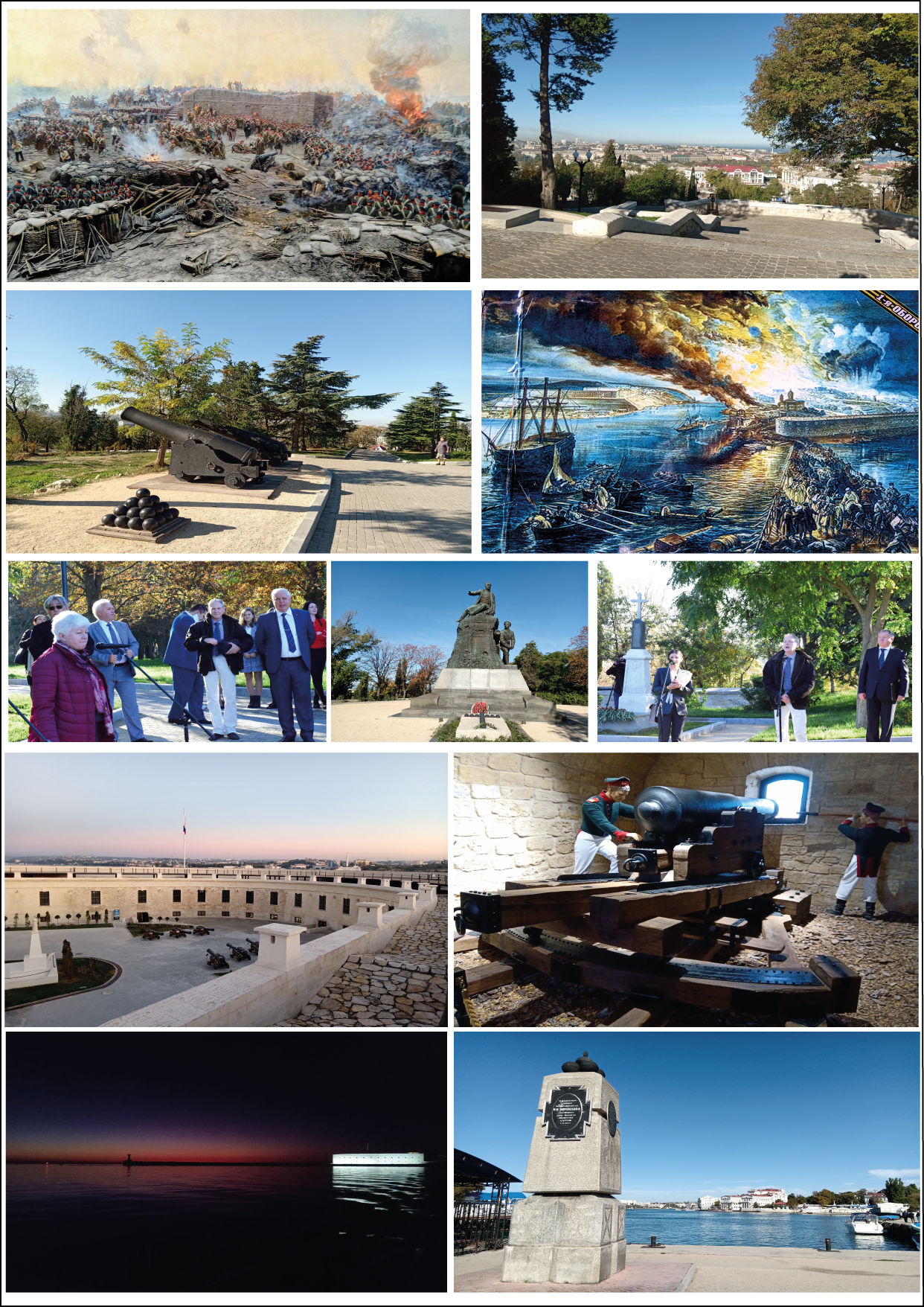
Pictures of the ceremony at Malakoff Hill and historical sites related to Crimea war in Sevastopol

Crimea and its natural, historical and cultural heritage
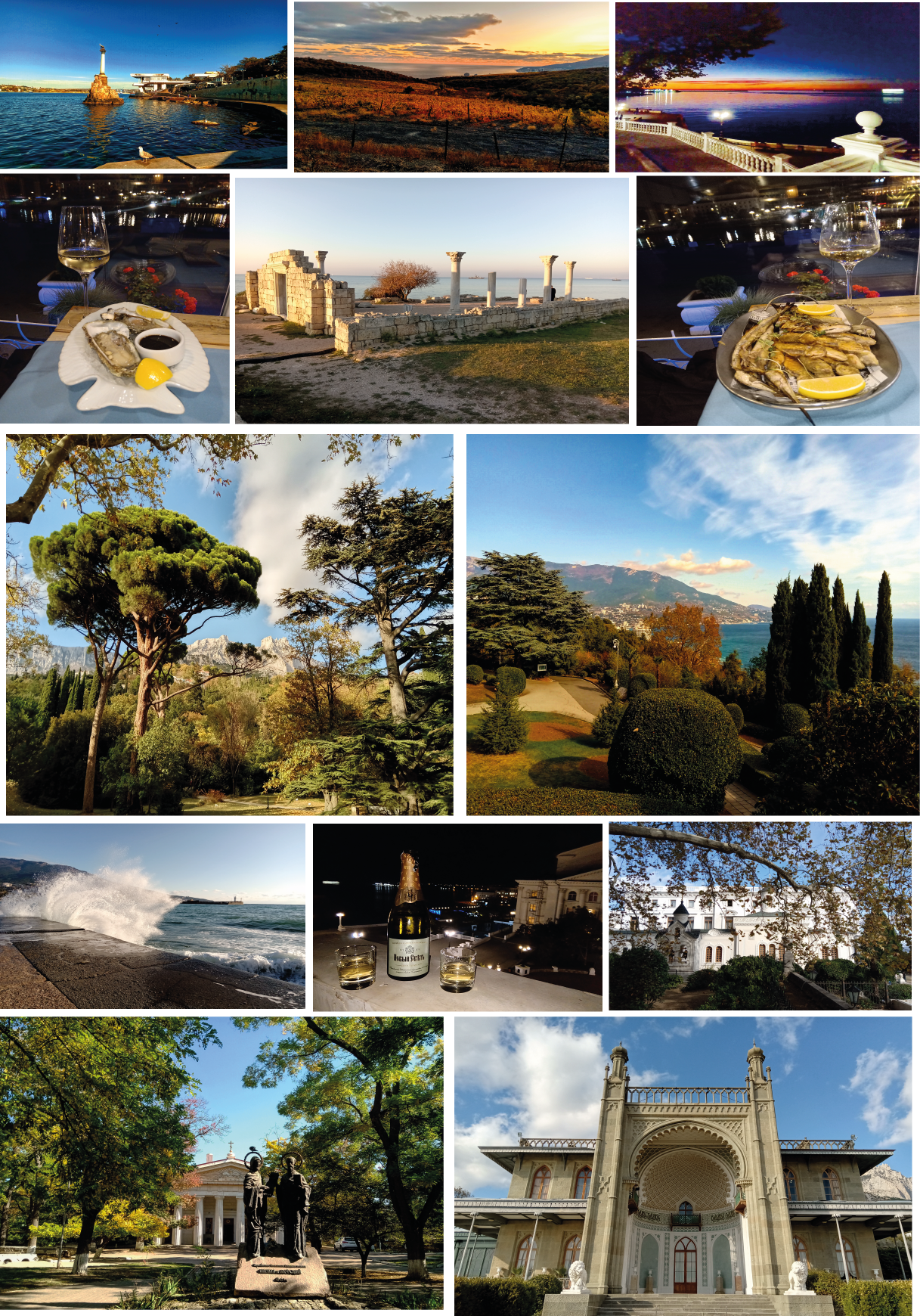
Crimea and its natural, historical and cultural heritage
